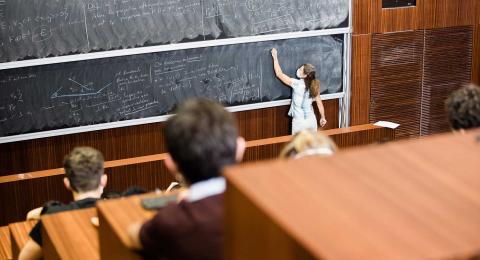The goal of the training is to learn how to model and study random phenomena, as well as to explore the applications of these mathematical methods in other sciences.
First semester: theoretical courses. Second semester: Research-oriented courses
Information
Skills
Learn how to understand and write research-level mathematics in probability and statistics.
Objectives
We give the theoretical basis of modern probability and/or statistics at an advanced master level.The main objective is to prepare excellent students whose goal is to pursue in a PhD program.Our thematic spectrum is very broad, ranging from the statistical theory of machine learning, high dimensional probability and statistics to stochastic calculus, Markov chains, random graph and ergodic theory. See the web page of the master for more information.
Career Opportunities
Career prospects
Doctorant
Further Study Opportunities
Doctorat
Fees and scholarships
The amounts may vary depending on the programme and your personal circumstances.
Capacity
Available Places
Target Audience and Entry Requirements
Master 1 (or equivalent) in fundamental mathematics. Applicants who have excelled in their studies at universities, engineering schools, teacher training colleges in France or elsewhere, and who wish to learn the fundamentals of random mathematics (probability and/or statistics and/or machine learning ...). The programme naturally leads to to doctoral thesis preparation.
Application Period(s)
From 30/01/2026 to 15/07/2026
Supporting documents
Compulsory supporting documents
Motivation letter.
All transcripts of the years / semesters validated since the high school diploma at the date of application.
Curriculum Vitae.
Detailed description and hourly volume of courses taken since the beginning of the university program.
Additional supporting documents
VAP file (obligatory for all persons requesting a valuation of the assets to enter the diploma).
Recommendation letters.
Document indicating the list of local M2 choices available here : https://urlz.fr/i3Lo.
Supporting documents :
- Residence permit stating the country of residence of the first country
- Or receipt of request stating the country of first asylum
- Or document from the UNHCR granting refugee status
- Or receipt of refugee status request delivered in France
- Or residence permit stating the refugee status delivered in France
- Or document stating subsidiary protection in France or abroad
- Or document stating temporary protection in France or abroad.









